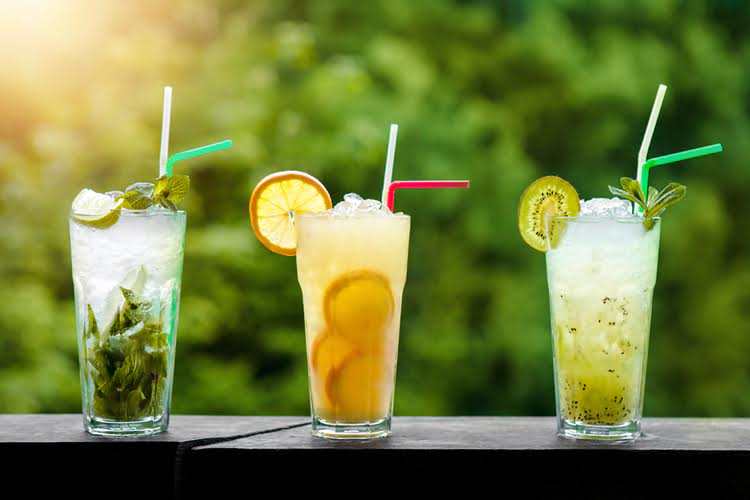While you are still in control of your actions during a blackout, your ability to make decisions can be greatly impaired. After a night of blackout drinking, people often find that they said or did things that they would not normally say or do. And oftentimes, when people run into legal trouble while drinking, they do not remember what they did and have to be informed the next day.
- It is possible that these individuals may have differed from individuals who spent more than 25 minutes on the survey (e.g., greater psychopathology); therefore, it is a limitation that we did not compare those individuals we excluded.
- It is possible that these two bodies of evidence represent two separate relationships between PTSD and AUD.
- Motivated forgetting may explain why some people develop PTSD after a horrific event while others don’t.
- The study was approved by the Regional Committee for Medical Research Ethics of Norway and the National Health Research Council of Nepal.
- Further, CRH antagonists reduce both the anxiety and the enhanced response to illicit substances (sensitization) that are induced by higher levels of brain CRH.
Werner and colleagues (2016) utilized a large dataset of almost 4,000 women to examine comparative differences in alcohol use patterns, AUD prevalence, and the relationship between trauma and AUD among European American (EA) and African American (AA) women. EA women were found to be more likely than their AA counterparts to use alcohol and to develop AUD. In contrast, AA women were more likely than their EA counterparts to experience trauma and to develop PTSD. There were connections between exposure to specific traumas (most commonly sexual and physical abuse) and increased risk of early alcohol initiation and subsequent development of AUD, although these connections were only observed among EA women.
The Link Between Alcohol Misuse and PTSD
Because of the underrepresented female sample, we performed post hoc analysis to confirm the consistency of the observed findings. This study was conducted in late 2010, long before the major earthquakes hit Nepal in April and May, 2015. Trauma psychiatry is only in its infancy, partly because of resource limitations and poor local constructs for PTSD hindering treatment seeking [39]. The nation’s specialized psychiatry and addiction treatment facilities are concentrated in the major cities and serve patients from across the country. Treatment providers are available 24/7 to answer your questions about rehab, whether it’s for you or a loved one.

Animal studies examining the effects of uncontrollable stress on HPA axis function have reported initial increases of corticosterone secretion, followed by normalization of corticosterone secretion with ongoing chronic stress (41). However, some investigators have failed to demonstrate normalization of corticosterone secretion with chronic uncontrollable stress (42), particularly in animals that have been reared under stressful conditions (43) or when levels of chronic stress are high (44). In a pattern similar to that found in humans with PTSD, animals subjected to a single episode of prolonged stress and then briefly restressed after a stress-free period showed enhancement of glucocorticoid negative feedback (45). Random prompts included checklists of eight conduct problems experienced in the last 30 minutes (e.g., getting into an argument, acting mean, risk taking, damaging relationship). In addition, the self-initiated morning assessment included assessments of five additional items that may be missed during the random assessments (e.g., risky sex, physical assault). Each item was rated dichotomously and assessed behavior independent of drinking.
What about alcohol?
The National Center for PTSD estimates as many as 75 percent of trauma survivors experience an alcohol use disorder. PTSD and alcohol abuse may occur together due to the tendency of people diagnosed with PTSD to engage in self-destructive behavior and the desire to avoid thinking about the trauma. Combat exposure is a common source of trauma, and these wounds may not heal on their own. The VA estimates that 11-20% of the veterans deployed to Iraq or Afghanistan may have PTSD. These individuals are at higher risk to engage in unhealthy behaviors like blackout drinking, particularly if they are not receiving mental health support.
Participants were provided with a Samsung Galaxy Player 5.0 loaded with the Android momentary assessment software (Simons & Gropel, 2012). As part of the baseline assessment, the Structured Clinical Interview for DSM-IV-TR (American Psychiatric Association, 2000) Patient Edition (SCID-I / P; First, Spitzer, Gibbon, & Williams, January, 2010) was administered. This included the anxiety and substance ptsd alcohol blackout use disorder modules, which were used to assess PTSD and AUD for sample description. To begin, two systematic reviews discuss the current state of behavioral (Simpson et al., 2017) and pharmacological (Petrakis & Simpson, 2017) treatments for comorbid AUD/PTSD. Patients satisfying either alcohol abuse and/or alcohol dependence criteria are together defined as having an alcohol use disorder.
Do People Use Alcohol to Cope with PTSD?
Despite being allocated to distinct groups, women, hospital inpatients, and participants with refugee backgrounds (all women) were underrepresented in the sample. All participants had an AUD which is, in itself, a modulatory factor for neuroimmune status. We are unable to confirm the accuracy of recall of past adverse events and other forms of reporting bias as several of the variables were constructed from personally sensitive self-report data. Further, calculation of standard alcohol units is approximate as the possibility of a wide variation in the ethanol concentration of locally brewed beverages cannot be ruled out.

Reduced neurogenesis and a lack of neurotrophic support, such as that reflected in reduced plasma brain-derived neurotrophic factor (BDNF) levels, as well as increased stress hormones are consistent findings in stress-related disorders, including PTSD [29, 30]. Stress and trauma are both causes of alcoholism, making PTSD a serious risk factor for developing alcohol addiction. When you use alcohol to deal with PTSD symptoms, you may feel better in the moment, but those feelings always return—often more severely. Prolonged blackout drinking can also cause serious problems throughout your life, which may worsen your mental health and make you even more reliant on alcohol. Ultimately, each veteran’s experience is unique, and there is no experience that you have to go through to be considered traumatized. If you find it hard to live with the aftermath of your service, particularly if you are engaging in blackout drinking or other unhealthy behaviors, you may be at higher risk of developing alcohol addiction due to an underlying mental health issue.


